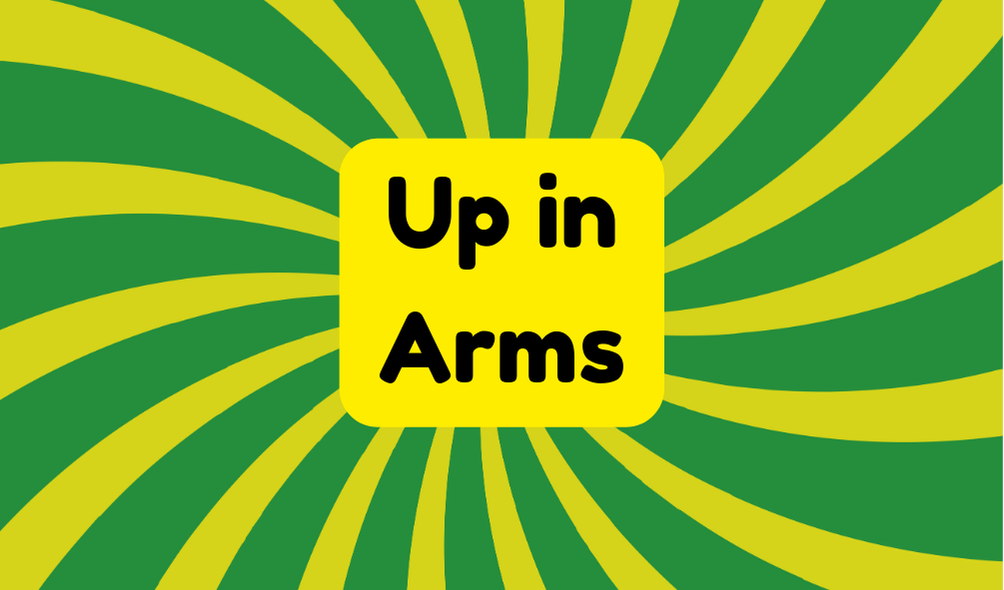The phrase "up in arms" means to express strong anger or opposition. Originating from a military context in the 1500s, it evolved to symbolize public outcry by the 1700s. For example, one might say, "Residents were up in arms about the new landfill." Commonly used in protests, it captures collective frustration. This expression remains relevant as people voice their discontent over various issues. Understanding its background reveals much about how society communicates outrage today.
Synonyms
When discussing the phrase "up in arms," it is helpful to explore its synonyms, which convey similar emotions and actions. Understanding these alternatives can aid in anger management discussions and public protests, where expressing outrage is essential.
- Disgruntled
- Indignant
- Furious
- Defiant
These words illustrate varying degrees of unrest and resistance, often characterizing groups dissatisfied with decisions or policies. Recognizing the nuances behind each synonym enables better communication of feelings, thereby demonstrating the power of language in protest movements. Ultimately, selecting the right term can sharpen the message being conveyed.
Example of Sentences
Exploring the phrase "up in arms" reveals various contexts where individuals or groups express strong dissatisfaction. This idiom often surfaces in discussions around public protests and community outrage. Some compelling examples include:
- "Neighbors were up in arms about the new zoning laws that disrupted their community."
- "Activists were up in arms when the government proposed cuts to environmental programs."
- "Residents were up in arms regarding the controversial landfill being built near their homes."
- "The fanbase was up in arms over the team's decision to trade their star player."
Such scenarios illustrate the collective frustrations that spark vocal opposition.
Origin
The phrase "up in arms" has an intriguing history that reflects its evolution from a literal to a figurative context. Emerging in the 1500s, its historical roots are tied to the term "arms," referencing weapons and military readiness. Initially, this phrase signified a call to arms against adversaries, emphasizing the urgency of conflict. Its literary significance is evident in works like Shakespeare's "King Richard III." However, by the 1700s, the idiom had transcended its martial origins, symbolizing public outcry. This transformation illustrates how language adapts, bridging the gap between historical context and contemporary expressions of dissent in society.
Collocations
Collocations involving the phrase "up in arms" highlight its versatility in conveying emotional intensity. Common phrases related to this expression illustrate both individual and collective discontent. Familiar collocations with "up in arms" include:
- "up in arms over policy changes"
- "up in arms against unjust laws"
- "up in arms about community issues"
- "up in arms for workers' rights"
These phrases demonstrate how "up in arms" encapsulates feelings of outrage and resistance. However, it is crucial to recognize the varying contexts that shape these reactions, as they often reflect deeper societal issues deserving critical attention.
How to Use in Everyday Language
Using the phrase "up in arms" in everyday conversation can effectively convey feelings of anger or opposition, particularly when discussing social issues or organizational changes. Individuals can incorporate this expression in various everyday scenarios, such as when reacting to sudden policy changes at work or expressing disdain for community decisions. It often surfaces during spontaneous protests, capturing the collective outrage felt by groups. This phrase allows speakers to communicate strong sentiments succinctly, emphasizing their dissatisfaction or rebellion. By utilizing "up in arms," one can create a vivid picture of discontent, making their viewpoint clear and relatable.
Why Is It Still Relevant Today?
In today's rapidly changing world, people frequently find themselves "up in arms" about various issues, reflecting an ongoing need for collective dissatisfaction and resistance. This relevance is particularly pronounced among social movements and public protests, which often mobilize individuals toward common goals. The phrase captures the essence of communities rising against policies that appear unjust or inequitable. As society grapples with rapid transformations, feelings of anger and frustration remain prevalent. Consequently, the expression serves as a reminder that collective action, sparked by grievances, is essential for social progress and accountability in a world where voices can otherwise be silenced.







